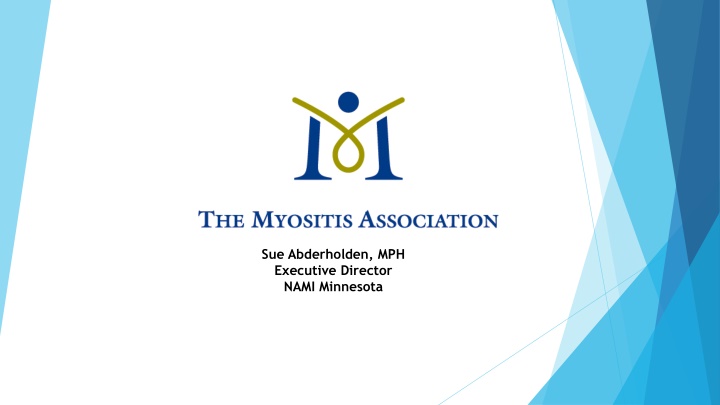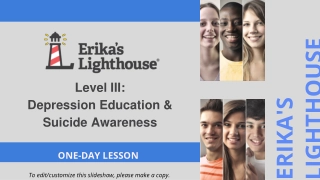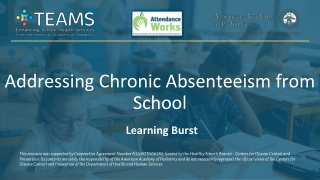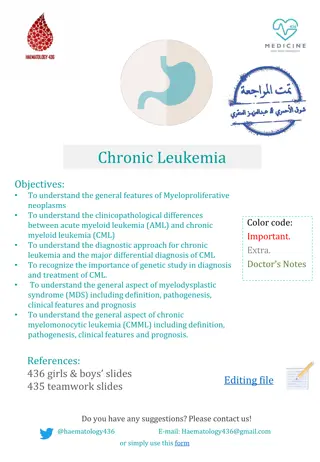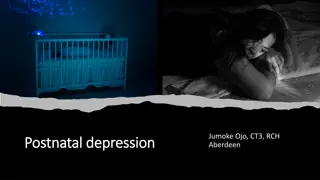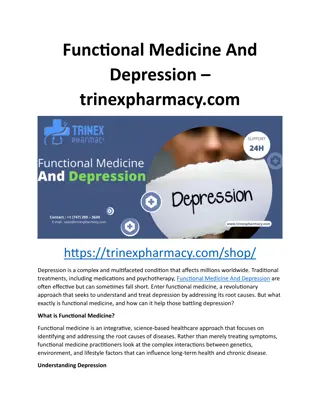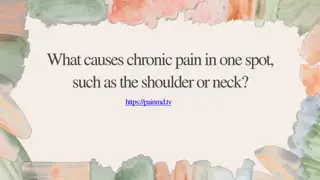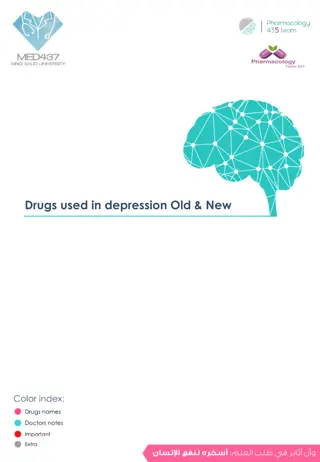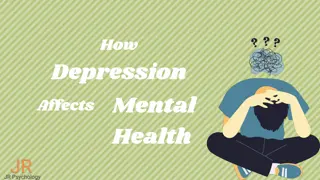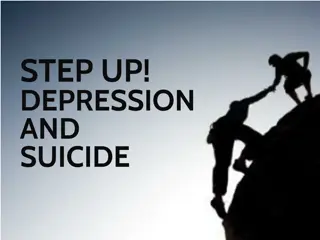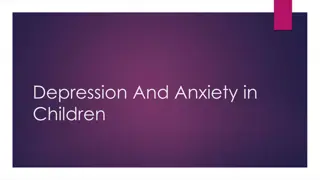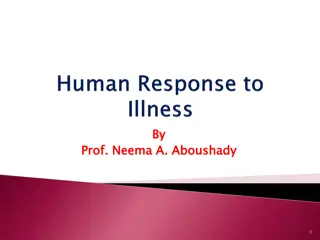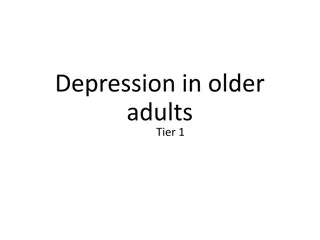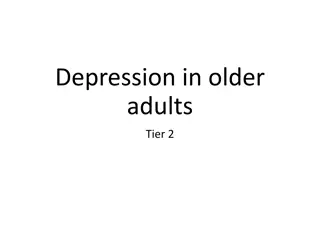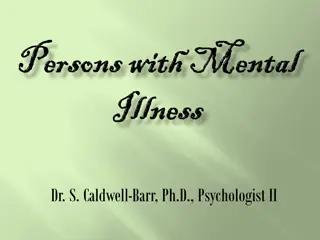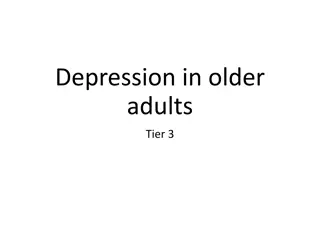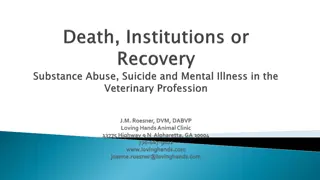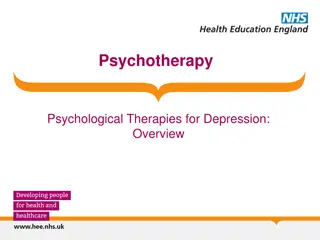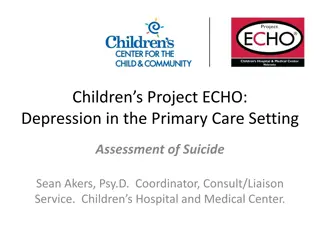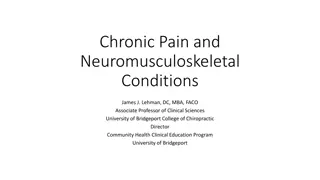Depression, Chronic Illness, and Seeking Help
Depression affects a significant portion of the population, with various risk factors and symptoms. Chronic illnesses can also increase the risk of depression, leading to challenges in managing both conditions. Seeking help and support is crucial, as isolation can worsen these issues. Resources like the NAMI Helpline and National Suicide Hotline are available for assistance.
Download Presentation

Please find below an Image/Link to download the presentation.
The content on the website is provided AS IS for your information and personal use only. It may not be sold, licensed, or shared on other websites without obtaining consent from the author.If you encounter any issues during the download, it is possible that the publisher has removed the file from their server.
You are allowed to download the files provided on this website for personal or commercial use, subject to the condition that they are used lawfully. All files are the property of their respective owners.
The content on the website is provided AS IS for your information and personal use only. It may not be sold, licensed, or shared on other websites without obtaining consent from the author.
E N D
Presentation Transcript
Sue Abderholden, MPH Executive Director NAMI Minnesota
Depression Almost 7% of the population had at least one major depressive episode in the past year. People of all ages and racial, ethnic and socioeconomic backgrounds experience depression Depression is more common among women than among men Risk factors include a personal or family history of depression or loss of family members to suicide. Symptoms: No joy in life Difficult to make any decisions Hard to read or even watch TV Feeling hopeless, worried you won t ever feel better Feeling like a failure, having only negative thoughts Can t sleep well either falling asleep or staying asleep Feel tired and exhausted no matter how much you sleep no energy Food is either not appetizing or craving unhealthy foods 2
Chronic Illnesses and Depression Risk factors directly related to having another illness. Some conditions cause changes in the brain. Illness-related anxiety and stress can also trigger symptoms of depression. Physiological changes seen in depression may play a role in increasing the risk of physical illness. Such as: Signs of increased inflammation Changes in the control of heart rate and blood circulation People who have depression and another medical illness tend to have more severe symptoms of both illnesses. They may have more difficulty adapting to their co-occurring illness than those who do not also have depression. Abnormalities in stress hormones Metabolic changes typical of those seen in people at risk for diabetes 3
Chronic Illnesses and Depression Too tired to manage symptoms of the chronic illness Difficulty remembering to follow through on treatment plan Increased irritability Lack of sleep may make exacerbate the symptoms of the illness Not sure which one is causing the fatigue 4
You Are Not Alone Isolation is an issue. Seek out others facing similar challenges Resources: NAMI Helpline at 800-950-6264 Families need to educate themselves on both issues Some states have mobile mental health crisis teams and warm lines Know that treatment works but it takes more than a pill National Suicide Text Line Text NAMI to 741741 National Suicide Hotline 1-800-273-TALK (8255) 5
